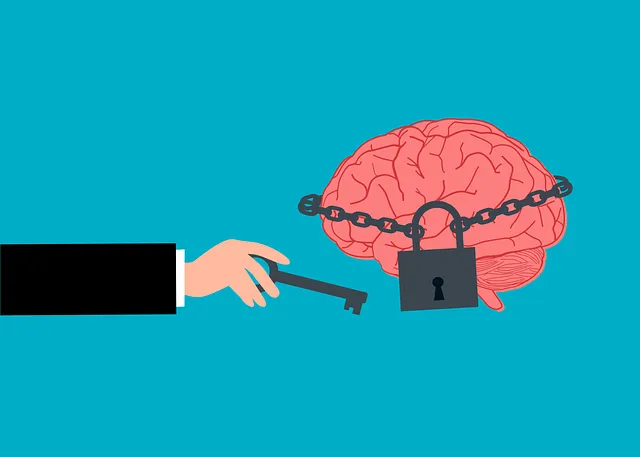Northglenn Kaiser Permanente recognizes the critical need to address healthcare provider burnout, driven by demanding patient care and long work hours. They propose a comprehensive strategy focusing on Mind Over Matter principles, emotional intelligence training, and trauma support tailored to medical professionals' challenges. By integrating these services, Northglenn Kaiser Permanente behavioral health services aim to enhance provider well-being, reduce mental illness stigma, improve patient care, and create a resilient organizational culture through evidence-based practices like Self-Care Routine Development, Cognitive Behavioral Therapy, social skills training, and open communication.
Healthcare provider burnout is a growing concern, impacting not only individual well-being but also patient care quality. This article explores comprehensive strategies to prevent burnout among healthcare workers, focusing on the critical role of behavioral health services within organizations like Northglenn Kaiser Permanente. We examine evidence-based practices that foster resilience and promote self-care, ultimately aiming to create a supportive work environment that enhances job satisfaction and mitigates burnout at Northglenn Kaiser Permanente and beyond.
- Understanding Burnout Among Healthcare Providers: A Growing Concern
- The Role of Behavioral Health Services in Prevention
- Creating a Supportive Work Environment at Northglenn Kaiser Permanente
- Evidence-Based Strategies for Stress Management and Resilience
- Fostering a Culture of Self-Care and Work-Life Balance
Understanding Burnout Among Healthcare Providers: A Growing Concern

In recent years, healthcare provider burnout has become a growing concern within the medical community, particularly in regions like Northglenn where Kaiser Permanente behavioral health services are in high demand. The relentless nature of patient care, long work hours, and high-stress environments contribute significantly to this issue. Burnout is not merely physical exhaustion; it encompasses emotional depletion, cynicism towards one’s job, and feelings of ineffectiveness. This phenomenon is especially prevalent among frontline healthcare workers, including nurses, physicians, and mental health professionals.
The rise in burnout rates highlights the urgent need for proactive strategies to support healthcare providers’ well-being. At Northglenn Kaiser Permanente behavioral health services, a comprehensive approach is essential. This involves integrating Mind Over Matter principles to foster resilience, encouraging emotional intelligence as a tool for stress management, and providing trauma support services tailored to address the unique challenges faced by medical professionals. By acknowledging and addressing burnout at its core, healthcare organizations can create a healthier work environment, ensuring that providers remain engaged, motivated, and capable of delivering optimal patient care.
The Role of Behavioral Health Services in Prevention

Northglenn Kaiser Permanente’s behavioral health services play a pivotal role in preventing healthcare provider burnout. These services offer a comprehensive suite of support aimed at addressing the unique mental health challenges faced by medical professionals. By integrating behavioral health into their wellness programs, Kaiser Permanente Northglenn equips providers with tools to manage stress, anxiety relief, and to cultivate resilience against the demanding nature of their work.
In addition to promoting individual well-being, these services contribute significantly to Mental Illness Stigma Reduction Efforts. Creating safe spaces for open discussions about mental health fosters a culture where healthcare providers can seek help without fear of judgment. This, in turn, enhances their ability to care for patients while maintaining their own mental wellness. Through specialized interventions and group support, Northglenn Kaiser Permanente behavioral health services actively work towards destigmatizing mental illness, thereby enhancing the overall quality of life for both its members and healthcare providers.
Creating a Supportive Work Environment at Northglenn Kaiser Permanente

At Northglenn Kaiser Permanente, fostering a supportive work environment is a cornerstone in preventing healthcare provider burnout. The organization prioritizes Northglenn Kaiser Permanente behavioral health services as an integral part of its holistic approach to well-being. By integrating emotional well-being promotion techniques into daily operations, they create a safe space for providers to manage stress and prevent depression. This includes regular staff meetings focused on emotional healing processes, peer support groups, and access to professional counseling services.
Through these initiatives, Northglenn Kaiser Permanente ensures that healthcare providers feel valued, understood, and equipped with the necessary tools to maintain their mental health. Such a supportive environment not only minimizes burnout but also enhances job satisfaction, leading to improved patient care and overall organizational resilience.
Evidence-Based Strategies for Stress Management and Resilience

At Northglenn Kaiser Permanente behavioral health services, evidence-based strategies play a pivotal role in mitigating healthcare provider burnout and fostering resilience. One such strategy is Self-Care Routine Development for Better Mental Health. Encouraging providers to prioritize personal well-being through structured self-care routines can significantly enhance their ability to manage stress. This includes activities like regular Mindfulness Meditation, which has been scientifically proven to reduce anxiety relief and improve emotional regulation.
Additionally, incorporating evidence-based practices such as cognitive behavioral therapy (CBT) techniques into daily life can equip healthcare providers with valuable tools to combat stress and promote mental resilience. By adopting these strategies, Northglenn Kaiser Permanente aims to create a supportive environment that not only prevents burnout but also enhances the overall quality of care provided to patients.
Fostering a Culture of Self-Care and Work-Life Balance

At Northglenn Kaiser Permanente behavioral health services, we recognize that fostering a culture of self-care and work-life balance is paramount to preventing burnout among healthcare providers. This involves encouraging staff to prioritize their well-being, both physically and emotionally, alongside their professional responsibilities. One effective strategy is integrating social skills training and stress management techniques, which can enhance interpersonal connections while reducing anxiety and depression. By promoting open communication and healthy coping mechanisms, we empower our team members to better manage the demands of their roles.
Furthermore, initiatives aimed at self-esteem improvement and confidence boosting are integral to this culture. Regular workshops and counseling sessions that focus on these areas not only boost morale but also strengthen resilience in the face of challenging situations. When healthcare providers feel valued, supported, and empowered, they are better equipped to provide compassionate care without compromising their own mental health. This holistic approach ensures a sustainable work environment where professionals can thrive while maintaining a healthy work-life balance.
Healthcare provider burnout is a pressing issue, but by implementing evidence-based strategies, organizations like Northglenn Kaiser Permanente can foster a supportive work environment and promote behavioral health services. By prioritizing self-care, stress management, and work-life balance, healthcare providers can enhance their resilience and prevent burnout. Adopting these strategies not only benefits individual well-being but also contributes to delivering high-quality patient care in the long term.






